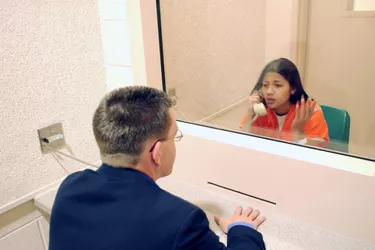
If your spouse is incarcerated or is about to be incarcerated, you might be losing income. There are several organizations that can help you depending on what, specifically, you need financial help with. From public assistance to private financial-aid services, you have many different options for seeking financial help.
Financial Aid
Video of the Day
If you're pursuing higher education, you should let the financial-aid department of the prospective institution know that your spouse is incarcerated and that you might need extra help. Set up an appointment with a financial-aid counselor so that she can evaluate your situation. One strategy that some financial-aid counselors use is to treat the situation as if you and your spouse were separated, which will decrease your household size. Decreasing your household size will change the grants or awards you may be eligible for, which may help you get more financial aid.
Video of the Day
Child Support
If you have children, you probably have extra financial concerns. If you're thinking about separating from or divorcing your incarcerated spouse, you should know that you can file a petition for child support against your child's parent, even if he is incarcerated. Your incarcerated spouse probably won't be able to offer you much money, but the minimum monthly child support payment is 25 dollars per month.
Public Assistance
If you find yourself unable to pay for basic needs, public assistance is available. You can apply for public assistance either for yourself or for your family if you have children.
If you have children, you can also apply for a Child-Only grant through public assistance, which allows you to get money to pay for your child's expenses (like medical care, clothing and food) regardless of how much money you make.
Community Support
Many communities have community-based organizations that help people in need with housing expenses, substance abuse therapy, health care, employment, child care expenses and even counseling.
Some public organizations may be dedicated especially to families of the incarcerated, and others may be able to offer help no matter who you are, such as public schools, charities and social-service agencies.